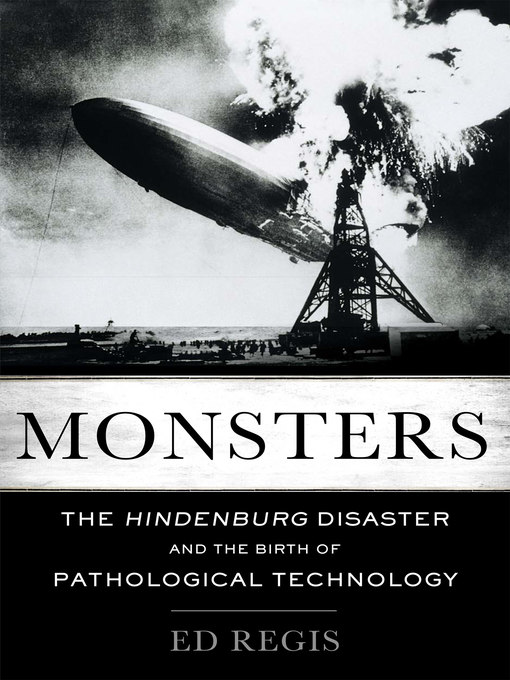
Zeppelins were steerable balloons of highly flammable, explosive gas, but the sheer magic of seeing one of these behemoths afloat in the sky cast an irresistible spell over all those who saw them. In Monsters, Ed Regis explores the question of how a technology now so completely invalidated (and so fundamentally unsafe) ever managed to reach the high-risk level of development that it did. Through the story of the zeppelin's development, Regis examines the perils of what he calls "pathological technologies" — inventions whose sizeable risks are routinely minimized as a result of their almost mystical allure.
Such foolishness is not limited to the industrial age: newer examples of pathological technologies include the US government's planned use of hydrogen bombs for large-scale geoengineering projects; the phenomenally risky, expensive, and ultimately abandoned Superconducting Super Collider; and the exotic interstellar propulsion systems proposed for DARPA's present-day 100 Year Starship project. In case after case, the romantic appeal of foolishly ambitious technologies has blinded us to their shortcomings, dangers, and costs.
Both a history of technological folly and a powerful cautionary tale for future technologies and other grandiose schemes, Monsters is essential reading for experts and citizens hoping to see new technologies through clear eyes.
-
Creators
-
Publisher
-
Release date
September 8, 2015 -
Formats
-
Kindle Book
-
OverDrive Read
- ISBN: 9780465061600
- File size: 2399 KB
-
EPUB ebook
- ISBN: 9780465061600
- File size: 2399 KB
-
-
Accessibility
No publisher statement provided -
Languages
- English
-
Reviews

Loading
Formats
- Kindle Book
- OverDrive Read
- EPUB ebook
subjects
Languages
- English
Why is availability limited?
×Availability can change throughout the month based on the library's budget. You can still place a hold on the title, and your hold will be automatically filled as soon as the title is available again.
The Kindle Book format for this title is not supported on:
×Read-along ebook
×The OverDrive Read format of this ebook has professional narration that plays while you read in your browser. Learn more here.